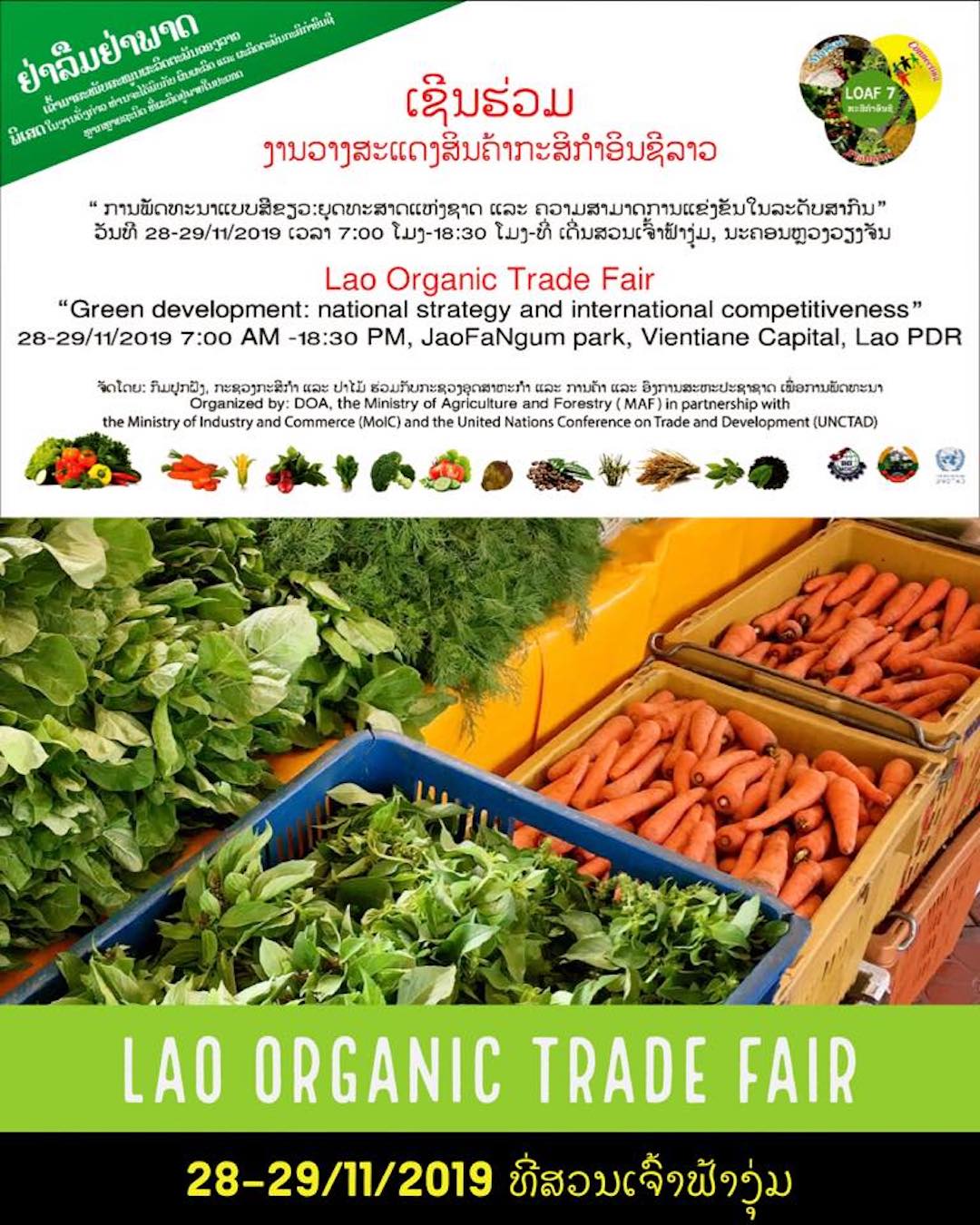
That’s the message at the 7th Lao Organic Agriculture Forum (LOAF) under the theme: ‘National Strategy for Green Development and International Competitiveness’ taking place in Vientiane from November 28-29. Organisers say it is an important platform to encourage public-private partnerships and dialogue on the development of organic agriculture. Deputy Minister of Agriculture and Forestry, Dr Bounkhouang Khambounheuang; Deputy Minister of Industry and Commerce, Mr Somchit Inthamith; Resident Coordinator of United Nations Laos, Ms Sara Sekkenes; and representative of the United Nations Conference on Trade and Development (UNCTAD), Ms Miho Shirotori are co-chairing the forum. Delegations from development partners, international organisations and farmers’ groups are also attending the event.
Dr Bounkhouang said, “Laos has strong potential for organic agriculture but is still struggling with various challenges because most organic farmers lack the technical and financial ability to compete on price, quality and quantity in overseas markets.” Meanwhile, Mr Somchit said the government needed to actively support farmers, especially with funding for infrastructure development and marketing to promote the international competitiveness of Lao organic agriculture.
Since the forum’s establishment in 2012, there have been six LOAF meetings with each focusing on a specific theme, ranging from ways to create organic value chains to institutional requirements for organic agriculture and its sustainability. Laos’ organic agriculture development is based on the 10-year Agriculture Development Strategy to the Year 2025 and Vision to the Year 2030, issued in 2015 by the Ministry of Agriculture and Forestry. The 10-year strategy aims at having 2 per cent of Laos’ production area certified as organic by 2025 and having organic markets established in all provinces, while goals for the 2030 vision are yet to be determined.
The last decade has witnessed a dramatic growth in global consumer demand for organic agricultural products. Despite concerted efforts by producers, processors, businesses, NGOs and government policymakers, Laos’ organic exports to international markets especially tea, coffee and rice along with fresh fruit and vegetables to regional markets have not yet reached their full potential. Previous LOAF meetings have identified financial and technical challenges related to complying with organic standards set by buyers. Participants at the current meeting heard that the focus now should be on the successful commercialisation of organic agriculture.
The ongoing meeting aims to facilitate multi-stakeholders on the way forward for Lao organic agriculture. With 2019 marking the midterm of the 10-year strategy, the forum is asking what has been achieved so far, what are the lessons learned over the first five years of the strategy, and what should be the national agenda for organic development in the coming years. The meeting is also addressing the issue of increasing the competitiveness of Lao organic agriculture, asking how do regional and international buyers value Lao organic exports and what can be done to improve competitiveness as well as forming more partnerships in local organic agriculture, and how best can we achieve synergies among the various activities and initiatives in support of domestic organic agriculture provided by agencies and development partners? The forum is also featuring an organic agriculture fair to help promote local farmers and domestic processing.
Information source: Vientiane Times.


